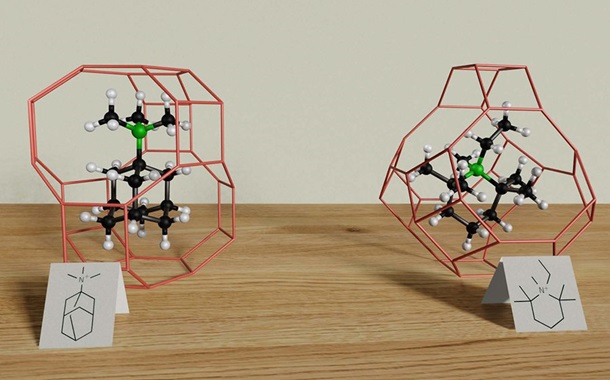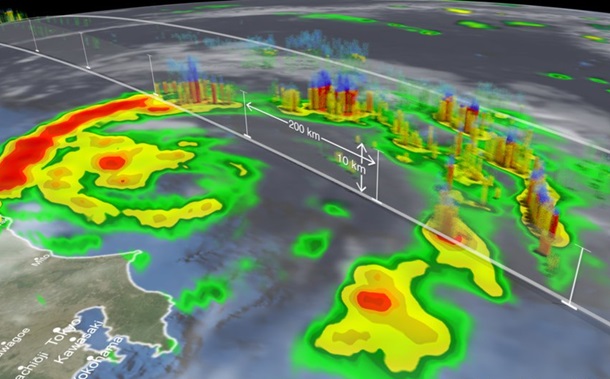Are Activation Teaching Methods Really Effective?
Downloads
Doi:10.28991/HIJ-2022-03-04-06
Full Text:PDF
Downloads
Tusupbekova, E. K., Tusupbekov, E. T., & Nurzhanova, K. K. (2019). Innovative Methods for Activation of Cognitive Activity of Students of Technical Universities. Issues of Pedagogy, (6-2), 9-13. (In Russian).
Yagafarova, K., & Kamennaya, E. (2019). Activation of the cognitive activity of students of a technical university through the individualization of education. SHS Web of Conferences, 69, 00133. doi:10.1051/shsconf/20196900133.
Stanislavovna, U. R. N., & Radjabova, S. (2022). Features in the activation of educational and cognitive activity in teaching nature. Web of Scientist: International Scientific Research Journal, 3(3), 255-259. doi:10.17605/OSF.IO/QG2UZ.
Baumert, J., Kunter, M., Blum, W., Brunner, M., Voss, T., Jordan, A., Klusmann, U., Krauss, S., Neubrand, M., & Tsai, Y. M. (2010). Teachers' mathematical knowledge, cognitive activation in the classroom, and student progress. American Educational Research Journal, 47(1), 133–180. doi:10.3102/0002831209345157.
Abdulloyeva, M. S. (2020). Interactive Forms of Training as a Method Activization at Secondary Schools. World Science, 4 (37), 10-13. (In Russian).
Cakici, D. (2016). The use of ICT in teaching English as a foreign language. Participatory educational research, 4(2), 73-77.
Lawrence, J. E., & Tar, U. A. (2018). Factors that influence teachers' adoption and integration of ICT in teaching/learning process. Educational Media International, 55(1), 79–105. doi:10.1080/09523987.2018.1439712.
Tazhikenova, S. (2012). Interactive methods of teaching as an innovation in education. Actual problems of the economy, 135(9), 500-506. (In Russian).
Schegoleva, I., Butova, S., Ivanova, L., & Korbukova, N. (2018). the Student As Co-Organizer of the Educational Process. EDULEARN18 Proceedings, 1, 8940–8948. doi:10.21125/edulearn.2018.2092.
Settineri, S. (2022). From Frontal Lesson to Other Forms of Teaching. Mediterranean Journal of Clinical Psychology, 10(2), 1-8. doi:10.13129/2282-1619/mjcp-3562.
Them, C., Schulc, E., Roner, A., & Behrens, J. (2003). Comparison of frontal teaching versus problem-oriented learning at the school of healthcare and nursing: Nursing neurological patients. International Journal of Medical Informatics, 71(2–3), 117–124. doi:10.1016/S1386-5056(03)00096-0.
Pecina, P., & Svoboda, I. (2015). Aspects of Learning in Didactics of Technical Subjects and Practical Training in the Context of Teaching Methods. Lifelong Learning, 5(2), 172–200. doi:10.11118/lifele20150502172.
Chiang, C. L., & Lee, H. (2016). The Effect of Project-Based Learning on Learning Motivation and Problem-Solving Ability of Vocational High School Students. International Journal of Information and Education Technology, 6(9), 709–712. doi:10.7763/ijiet.2016.v6.779.
Zukerstein, J., Novotní½, J., & Černí½, J. (2010). Technical studies and the needs of the region. Edukacja-Technika-Informatyka, 1(1), 162-164.
Nilsook, P., Chatwattana, P., & Seechaliao, T. (2021). The Project-based Learning Management Process for Vocational and Technical Education. Higher Education Studies, 11(2), 20. doi:10.5539/hes.v11n2p20.
Watson, J. (2018). Deferred creativity: Exploring the impact of an undergraduate learning experience on professional practice. Teaching and Teacher Education, 71, 206–213. doi:10.1016/j.tate.2017.12.018.
Grossman, P., Compton, C., Igra, D., Ronfeldt, M., Shahan, E., & Williamson, P. W. (2009). Teaching practice: A cross-professional perspective. Teachers College Record, 111(9), 2025–2100. doi:10.1177/016146810911100905.
Yuan, T. (2021). Algorithm of Classroom Teaching Quality Evaluation Based on Markov Chain. Complexity, 2021, 1–12. doi:10.1155/2021/9943865.
Marzano, R. J., Gaddy, B. B., & Dean, C. (2000). What Works In Classroom Instruction. McREL, Aurora, United States.
Walberg, H. J., & Paik, S. J. (2003). Effective educational practices. Successful Schooling, Discovery Publishing House, New Delhi, India.
Zachary, L. J., & Fain, L. Z. (2022). The mentor's guide: Facilitating effective learning relationships. John Wiley & Sons, Hoboken, United States.
Seidel, T., & Shavelson, R. J. (2007). Teaching effectiveness research in the past decade: The role of theory and research design in disentangling meta-analysis results. Review of Educational Research, 77(4), 454–499. doi:10.3102/0034654307310317.
Scheerens, J. (2005). Review of school and instructional effectiveness research. Paper commissioned for the EFA Global Monitoring Report, United Nations Educational, Scientific and Cultural Organization (UNESCO), Paris, France.
Bransford, J. D., Brown, A. L., & Cocking, R. R. (2000). How people learn (Vol. 11). Washington, DC: National academy Press, Washington, United States.
Floden, R. E. (2001). Research on effects of teaching: A continuing model for research on teaching. Handbook of research on teaching, American Educational Research Association, Washington, United States.
Cohen, D., & Crabtree, B. (2006). Qualitative research guidelines project. Robert Wood Johnson Foundation, New Jersey, United States.
Campbell, R. J., Kyriakides, L., Muijs, R. D., & Robinson, W. (2004). Effective teaching and values: Some implications for research and teacher appraisal. Oxford Review of Education, 30(4), 451–465. doi:10.1080/0305498042000303955.
Berns, M. (2013). Contexts of competence: Social and cultural considerations in communicative language teaching. Springer Science & Business Media, New York, United States. doi:10.1007/978-1-4757-9838-8.
Prucha, J. (2005). Czech pedagogical research: the problem of product usability. Pedagogical Research: Reflections on Social Needs and Expectations. Proceedings from XIII. ČAPV conference, 13-14 September, 2005, Olomouc, Czech Republic.
Campbell, J., Kyriakides, L., Muijs, D., & Robinson, W. (2012). Assessing teacher effectiveness: Developing a differentiated model, Routledge, London, United Kingdom. doi:10.4324/9780203403709.
Johnson, A. L., & Ruggiero, J. (2014). Nonparametric measurement of productivity and efficiency in education. Annals of Operations Research, 221(1), 197–210. doi:10.1007/s10479-011-0880-9.
Guironnet, J. P., & Peypoch, N. (2018). The geographical efficiency of education and research: The ranking of U.S. universities. Socio-Economic Planning Sciences, 62, 44–55. doi:10.1016/j.seps.2017.07.003.
Wolszczak-Derlacz, J. (2018). Assessment of TFP in European and American higher education institutions - Application of malmquist indices. Technological and Economic Development of Economy, 24(2), 467–488. doi:10.3846/20294913.2016.1213197.
Aristovnik, A. (2013). Relative efficiency of education expenditures in Eastern Europe: A non-parametric approach. Journal of Knowledge Management, Economics and Information Technology, 3(3), 1-4.
Burov, O. Y., & Pinchuk, O. P. (2023). A meta-analysis of the most influential factors of the virtual reality in education for the health and efficiency of students' activity. Educational Technology Quarterly, 2023(1), 58–68. doi:10.55056/etq.435.
Sun, Y., Wang, D., Yang, F., & Ang, S. (2023). Efficiency evaluation of higher education systems in China: A double frontier parallel DEA model. Computers and Industrial Engineering, 176. doi:10.1016/j.cie.2023.108979.
Longo, L. (2015). Activation of the Vocational and Personal Development (ADVP): An Innovative Educational Orientation Methodology. 9th International Technology, Education and Development Conference, 2-4 March, 2015, Madrid, Spain.
Dalton, T., & Gerdes, J. (2021). Creating an Immersive and Active Educational Experience for Generation Z. Proceedings of the 22st Annual Conference on Information Technology Education. doi:10.1145/3450329.3478316.
Cabrera-Solano, P., Ochoa-Cueva, C., & Castillo-Cuesta, L. (2023). Implementing the Engage, Study, Activate Approach Using Technological Tools in Higher Education. International Journal of Learning, Teaching and Educational Research, 22(1), 268–282. doi:10.26803/ijlter.22.1.15.
Hasanov, A. A., & Gatiyatulina, R. M. (2017). Interdisciplinary Communication as a Didactic Condition of Increasing the Efficiency of Educational Process. Eastern European Scientific Journal, (5), 1-6.
Musakhonovna, K. L. (2022). Peculiarities of using modern educational tools to increase the effectiveness of teaching the natural sciences and direct students to independent activities. Asian Journal of Multidimensional Research, 11(5), 182–191. doi:10.5958/2278-4853.2022.00106.9.
Chapman, D. W. (2002). Management and efficiency in education: Goals and strategies. Asian Development Bank, Hong Kong.
Johnes, J., Portela, M., & Thanassoulis, E. (2017). Efficiency in education. Journal of the Operational Research Society, 68(4), 331–338. doi:10.1057/s41274-016-0109-z.
Pandey, P., & Pandey, M. M. (2021). Research methodology tools and techniques. Bridge Center, Los Angeles, United States.
Š imek, V., Oláh, A., & Bočková, K. (2021). Secondary Socialization of Homeschoolers during the Covid-19 Pandemic. Emerging Science Journal, 5, 141–156. doi:10.28991/esj-2021-sper-12.
Heydarnejad, T., Hosseini Fatemi, A., & Ghonsooly, B. (2022). The interplay among self-regulation, emotions and teaching styles in higher education: a path analysis approach. Journal of Applied Research in Higher Education, 14(2), 594–609. doi:10.1108/JARHE-08-2020-0260.
McBer, H. (2001). Research into teacher effectiveness. Early Professional development of teachers, David Fulton Publishers, London, United Kingdom.
Fenstermacher, G.D., & Soltis, J.F. (2008). Teaching styles (Teaching styles of teachers). Portal, Teachers' Prague, Prague, Czech Republic. (In Czech).
Reynolds, D. (2006). World class schools: Some methodological and substantive findings and implications of the International School Effectiveness Research Project. Educational Research and Evaluation, 12(6), 535–560. doi:10.1080/13803610600874026.
McDonald, B. D. (2023). The dark horse of public administration: The challenge of pedagogical research. Teaching Public Administration, 41(1), 3–10. doi:10.1177/01447394231159983.
De Witte, K., & López-Torres, L. (2017). Efficiency in education: A review of literature and a way forward. Journal of the Operational Research Society, 68(4), 339–363. doi:10.1057/jors.2015.92.
Reynolds, D., & Teddlie, C. (2002). The International Handbook of School Effectiveness Research. Routledge, Milton Park, United Kingdom. doi:10.4324/9780203454404.
Muijs, D., Harris, A., Chapman, C., Stoll, L., & Russ, J. (2004). Improving schools in socioeconomically disadvantaged areas - A review of research evidence. School Effectiveness and School Improvement, 15(2), 149–175. doi:10.1076/sesi.15.2.149.30433.
Fraser, B. J., Walberg, H. J., Welch, W. W., & Hattie, J. A. (1987). Syntheses of educational productivity research. International Journal of Educational Research, 11(2), 147–252. doi:10.1016/0883-0355(87)90035-8.
Wang, M. C., Haertel, G. D., & Walberg, H. J. (1993). Toward a Knowledge Base for School Learning. Review of Educational Research, 63(3), 249–294. doi:10.3102/00346543063003249.
Grosskopf, S., Hayes, K. J., & Taylor, L. L. (2014). Efficiency in education: Research and implications. Applied Economic Perspectives and Policy, 36(2), 175–210. doi:10.1093/aepp/ppu007.
Darling-Hammond, L. (2000). Teacher Quality and Student Achievement. Education Policy Analysis Archives, 8, 1. doi:10.14507/epaa.v8n1.2000.
Cordero-Ferrera, J. M., Pedraja-Chaparro, F., & Salinas-Jimenez, J. (2008). Measuring efficiency in education: An analysis of different approaches for incorporating non-discretionary inputs. Applied Economics, 40(10), 1323–1339. doi:10.1080/00036840600771346.
Sari, T., & Nayır, F. (2020). Challenges in distance education during the (Covid-19) pandemic period. Qualitative Research in Education, 9(3), 328–360. doi:10.17583/qre.2020.5872.
Tomasik, M. J., Helbling, L. A., & Moser, U. (2021). Educational gains of in-person vs. distance learning in primary and secondary schools: A natural experiment during the COVID-19 pandemic school closures in Switzerland. International Journal of Psychology, 56(4), 566–576. doi:10.1002/ijop.12728.
Kousloglou, M., Petridou, E., Molohidis, A., & Hatzikraniotis, E. (2023). Assessing Students' Awareness of 4Cs Skills after Mobile-Technology-Supported Inquiry-Based Learning. Sustainability (Switzerland), 15(8), 6725. doi:10.3390/su15086725.
Dignath, C., & Veenman, M. V. J. (2021). The Role of Direct Strategy Instruction and Indirect Activation of Self-Regulated Learning”Evidence from Classroom Observation Studies. Educational Psychology Review, 33(2), 489–533. doi:10.1007/s10648-020-09534-0.
Glotova, T., & Kolchugina, I. (2021). Implementing innovative teaching methods in the digital environment. SHS Web of Conferences, 99, 01024. doi:10.1051/shsconf/20219901024.
Chuyun Hu, C. (2020). Understanding College Students' Perceptions of Effective Teaching. International Journal of Teaching and Learning in Higher Education, 32(2), 318-328.
Sitthimongkolchai, N., Viriyavejakul, C., & Tuntiwongwanich, S. (2022). Blended Experiential Learning with e-Portfolios Learning to Enhance Creative Imagination. Emerging Science Journal, 6, 25-39. doi:10.28991/ESJ-2022-SIED-03.
Kurniawan, Y., Karuh, C. S. Y., Ampow, M. K., Prahastuti, M., Anwar, N., & Cabezas, D. (2022). Evaluation of Hybrid Learning in the University: A Case Study Approach. HighTech and Innovation Journal, 3(4), 394-410. doi:10.28991/HIJ-2022-03-04-03.
Zemanova, M., & Knight, A. (2021). The Educational Efficacy of Humane Teaching Methods: A Systematic Review of the Evidence. Animals, 11(1), 114. doi:10.3390/ani11010114.
Havránková, T. (2021). Formát Ví½uky PŠ™evrácené TŠ™ídy V on-Line ProstŠ™edí V Hodinách Hospodኙské Angličtiny Na Vysoké Š kole. ACC Journal, 27(3), 88–101. doi:10.15240/tul/004/2021-3-009. (In Czech).
Abbott, C. (2007). E-inclusion: Learning difficulties and digital technologies, Volume 15. Futurelab, Bristol, United Kingdom.
Fu, J. (2013). Complexity of ICT in education: A critical literature review and its implications. International Journal of education and Development using ICT, 9(1), 112-125.
Hernandez, R. M. (2017). Impact of ICT on Education: Challenges and Perspectives. Journal of Educational Psychology-Propositos y Representaciones, 5(1), 337-347.
Jahnke, I., Meinke-Kroll, M., Todd, M., & Nolte, A. (2022). Exploring Artifact-Generated Learning with Digital Technologies: Advancing Active Learning with Co-design in Higher Education Across Disciplines. Technology, Knowledge and Learning, 27(1), 335–364. doi:10.1007/s10758-020-09473-3.
Minamatov, Y. E. O. G. L., & Nasirdinova, M. H. Q. (2022). Application of ICT in education and teaching technologies. Scientific progress, 3(4), 738-740.
Bizimana, E., Mutangana, D., & Mwesigye, A. (2022). Students' Perceptions of the Classroom Learning Environment and Engagement in Cooperative Mastery Learning-Based Biology Classroom Instruction. Education Research International, 2022, 1–14. doi:10.1155/2022/5793394.
Bergmann, J., & Sams, A. (2014). Flip Your Classroom Reach Every Student in Every Class Every Day. In Get Abstract Compressed Knowledge, 1–5.
Mehring, J. (2016). Present Research on the Flipped Classroom and Potential Tools for the EFL Classroom. Computers in the Schools, 33(1), 1–10. doi:10.1080/07380569.2016.1139912.
Diehl, W. (2020). Opportunities and Change Amidst Debate, Confusion, and Challenges in Education. American Journal of Distance Education, 34(4), 259. doi:10.1080/08923647.2020.1853424.
Wach, K., & Bilan, S. (2023). Creativity of Students in Favour of Their Entrepreneurial Intentions: Empirical Evidence From Poland. Creativity Studies, 16(1), 211–224. doi:10.3846/cs.2023.15028.
MaŠˆák, J. (2007). Modelování Kurikula. Orbis Scholae, 2(1), 40–53. doi:10.14712/23363177.2018.149.
Berbets, T., Berbets, V., Babii, I., Chyrva, O., Malykhin, A., Sushentseva, L., Medynskii, S., Riaboshapka, O., Matviichuk, T., Solovyov, V., Maksymchuk, I., & Maksymchuk, B. (2021). Developing Independent Creativity in Pupils: Neuroscientific Discourse and Ukraine's Experience. BRAIN. Broad Research in Artificial Intelligence and Neuroscience, 12(4), 314–328. doi:10.18662/brain/12.4/252.
Bočková, K. (2020). Home education. Wolters Kluwer, Praha, Czech Republic. (In Czech).
- This work (including HTML and PDF Files) is licensed under a Creative Commons Attribution 4.0 International License.






















